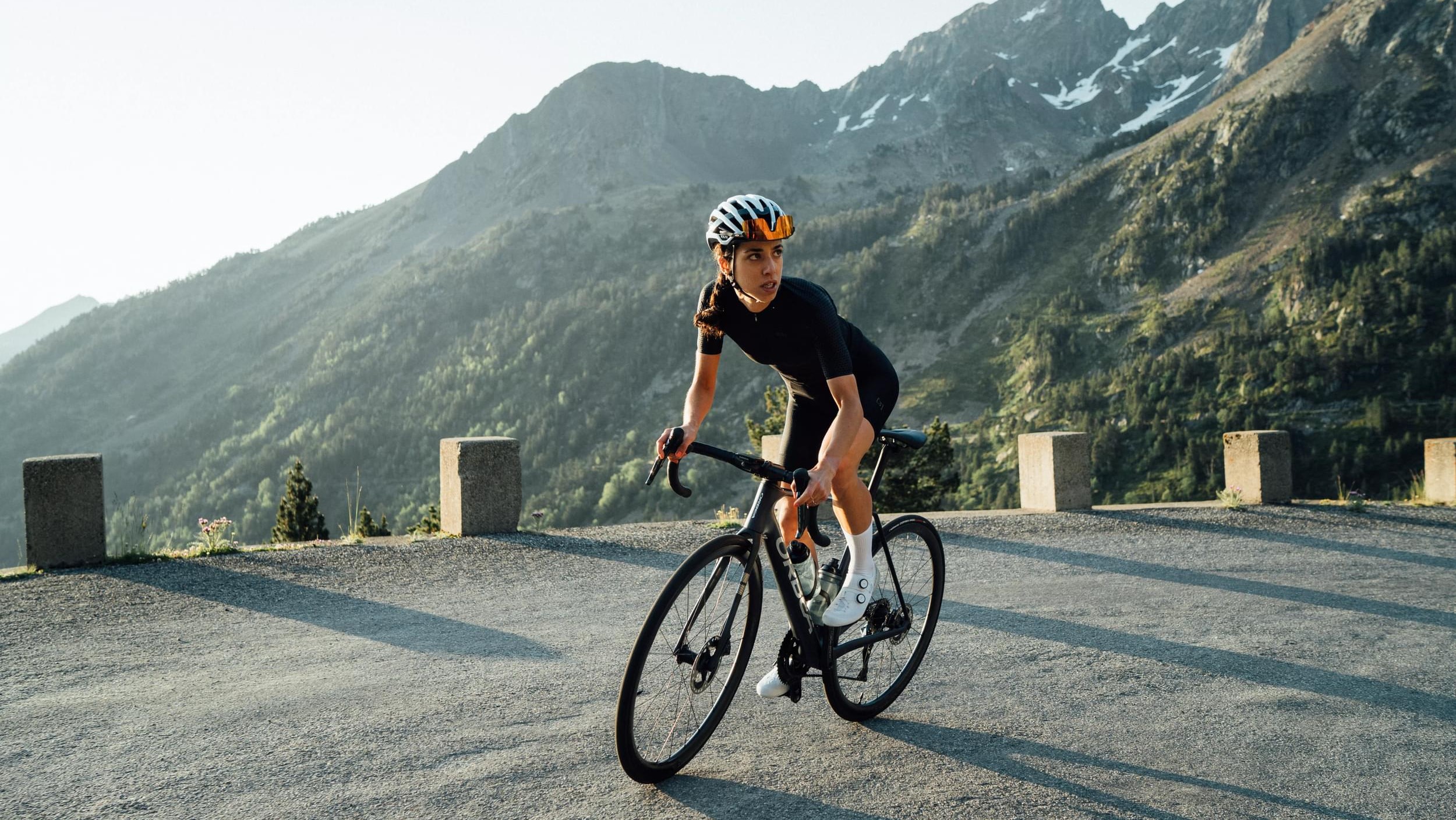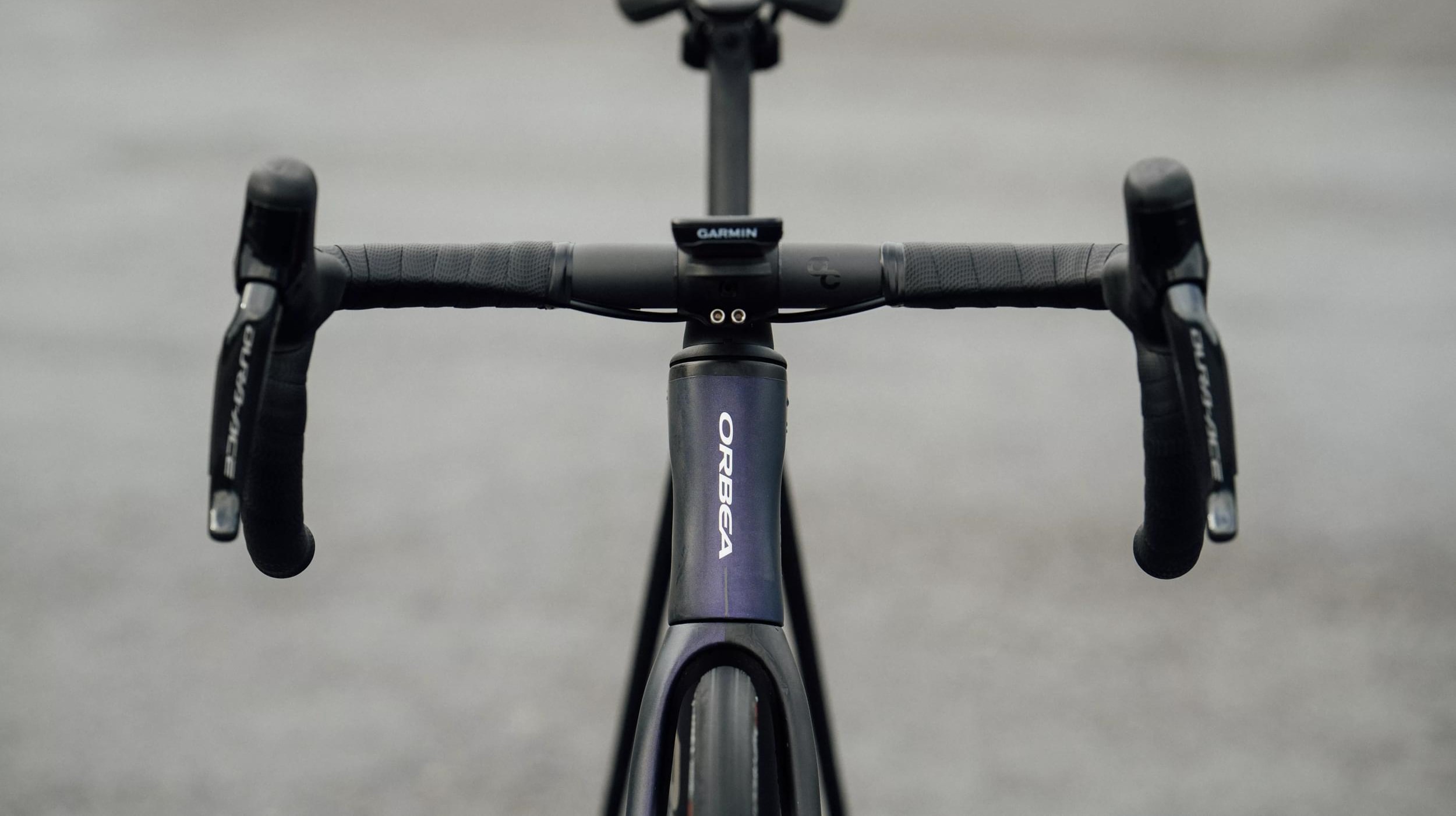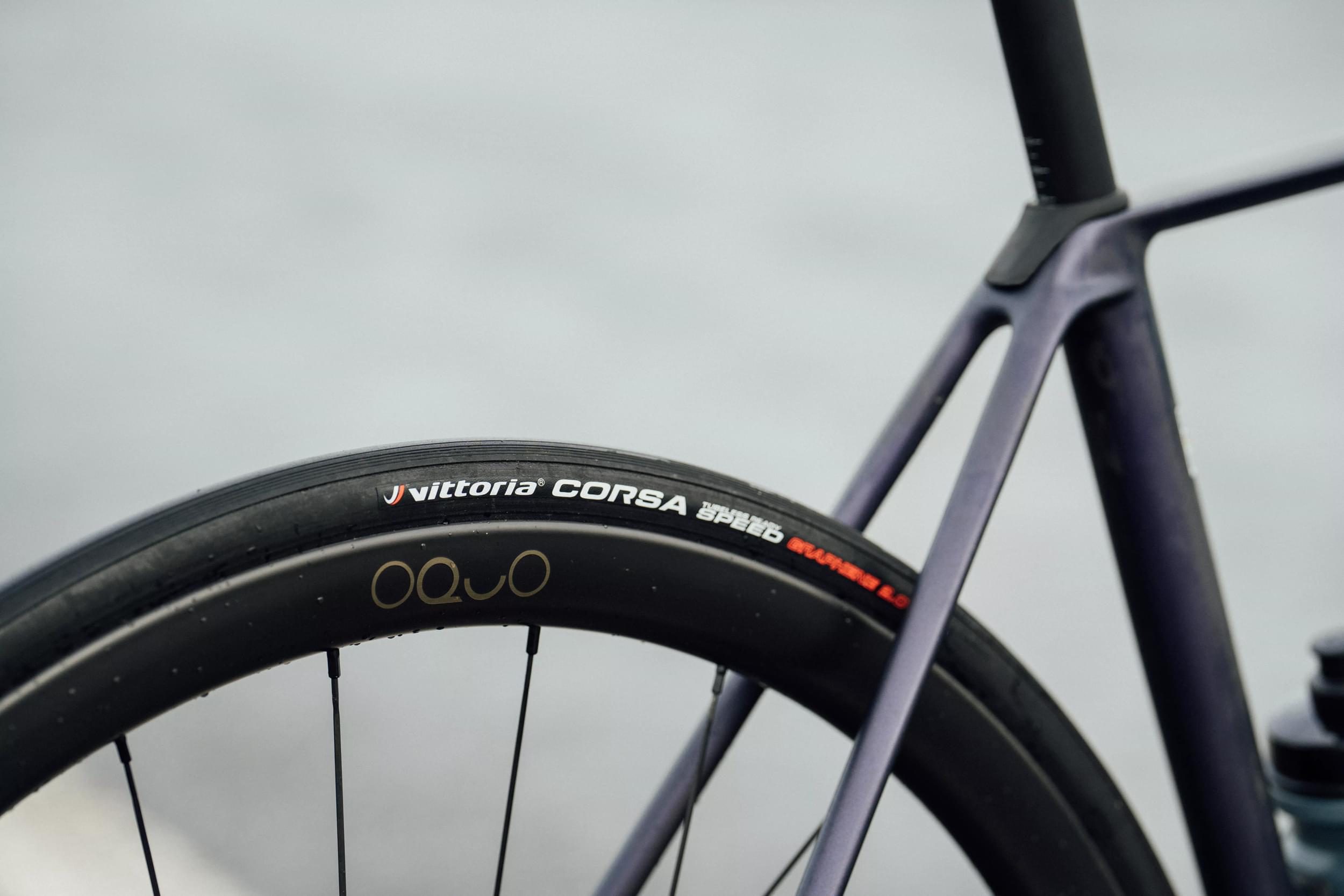
Any road cyclist who hasn’t noticed the rise and rise of the lightweight/aero bike must have been living under a stone. Almost all lightweight bikes have gained aero tube profiles over the last few years, to the point where full-on aero road bikes were looking like an endangered species. Long live the Specialized Venge.
Changes to the UCI's tube profile rules have breathed new life into the aero bike sector, but now, Orbea has gone in the other direction entirely with the new 2024 Orca range, returning to rounded tube profiles for its high-spec Orca OMX bikes.
Orbea says that there are too many compromises necessary when designing a lightweight aero bike. It’s never going to be as aero as a true aero bike and the construction complexities and the extra material needed to make a lightweight bike more aero mean that it’s never going to be as lightweight as a bike that doesn’t try to be aero.
“This is why increasing the weight of a light bike in exchange for aero features doesn't make any sense. On the climbs, the lighter the bike the better, and at high speeds, the more aero the better. The middle-weight bike with aero features doesn't win anywhere,” claims Joseba Arizaga, Road Product Manager at Orbea.
An 83g reduction in frame weight

To prove his point, the top spec 2024 Orbea Orca OMX frame in size 53 has a 750g claimed weight while the fork weighs 360g. Contrast that with the 833g claimed weight for a size 53 frame in the outgoing Orca OMX, which includes aero profile tubing in the seat tube, down tube, seat stays and seatpost.
Orbea says that its change of direction provides the new Orca with easy climbing and acceleration, as well as the agility and responsiveness which only a true lightweight bike can offer. The round tubing is also said to reduce vibration transmission to the rider, saving energy.
Orbea’s tests suggest that the 500g reduction in frame weight for a lightweight bike over an aero bike will save around three watts at a gradient of 5%, or six watts at 10%.

Orbea hasn’t totally thrown aero out though, nominally in areas where it could achieve aero gains without gaining weight. The Orca OMX includes integrated cable routing, a new seatpost clamp and a fork profile that it says all improve the bike’s aerodynamics. The brand also points out that its 'MyO' online custom bike configurator allows riders to choose wheels and bars that are more aero and select a frame size and stem length which allow them to ride in a more aero position.
Orbea says that it has achieved the reduced weight of the new Orca OMX frame by using fewer, larger pieces of carbon fibre prepreg in its construction, reducing the total number of pieces by 90. This reduces the number of overlaps between layers, although it does mean that laying up the prepreg sheets in the frame mould must be more precise.
It shaved more weight from the frame by designing its shapes so that resin doesn’t accumulate on corners or sharp edges.
Lighter components
Orbea has also worked with its in-house component and wheel brands to design the bike and components together. It claims that its RP10 stem is one of the lightest available and its new HP11 bars for the Orca OMX weigh just 190g. The bars offer a flared profile, which means narrower hoods for a more aero position there.

The latest Oquo RP35-LTD lightweight wheelset on the top-spec bike is claimed to weigh 1,380g and there are also lower-spec Team and Pro wheelsets, with three different depths: 35mm, 45mm and 57mm. The wheels are available with either carbon or alloy rims, all with a 21mm internal width to suit wider tyres.
Finally, Orbea claims that its paint weighs around 15g, while the hardware on the frame adds just 20g.
The result is a complete top-spec bike that Orbea says weighs 6.7kg. But it also claims that it’s not had to compromise on frame rigidity to reach this weight, with the head tube, down tube and chainstays resisting torsion, so that there’s efficient power transfer however many watts the rider puts out.
Orbea has left the Orca’s geometry largely as per the previous generation bike, with 408mm chainstay length and a shorter wheelbase, but still clearance for 32mm tyres, which it says adds traction and compliance, as well as reducing rolling resistance.
Other new features include a range of seatposts that can be used with saddle rails made of different materials and with round or oval sections.
Orbea Orca range and prices

Alongside the Orca OMX, Orbea also sells the lower modulus OMR frameset claiming a 1030g weight for the frame and 410g for the fork, the same as the previous model, which also had round tube profiles.
There are seven frame sizes available: 47, 49, 51, 53, 55, 57 and 60cm. While the OMX frame is available in two colours, the OMR frame comes in three colours. Orbea also offers the MyO custom colour configurator.
Prices for the six specs in the Orbea Orca OMX range are from £6,299 ($5,999, €5,799) to £11,999 ($11,599, €10,999), while the five specs in the Orca OMR range are priced from £3,599 ($3,599, €3,399) to £6,999 ($6,899, €6,599).
The new Orbea Orca is available immediately and will be raced in the Tour de France Femmes by the WNT Ceratizit team and in the Clásica San Sebastian by the Euskaltel-Euskadi men’s team.
With all that said, if you do hanker after an aero Orbea bike, don’t despair. Orbea still sells the aggressively aerodynamic Orca Aero alongside the new Orca OMX and OMR lightweight bikes.







